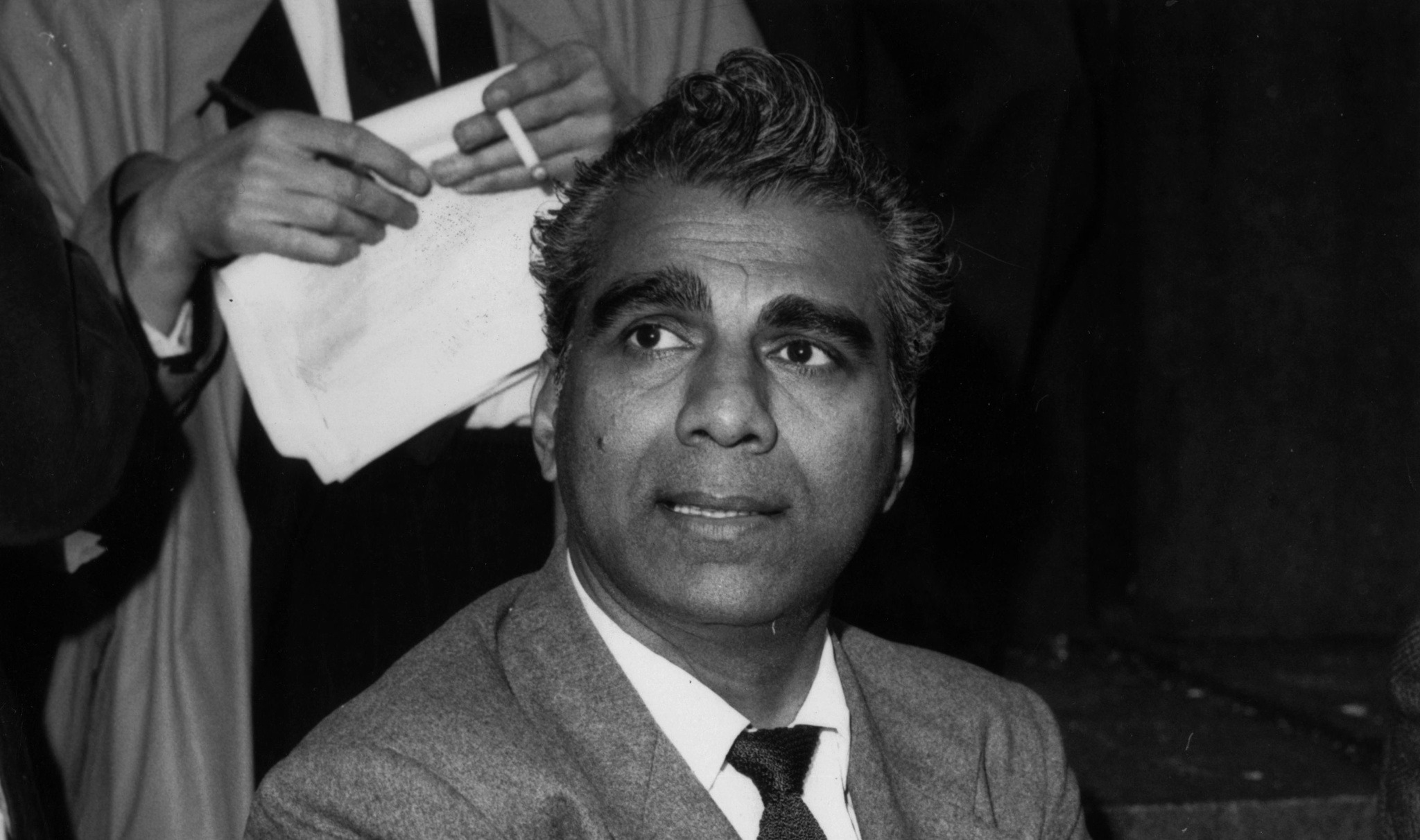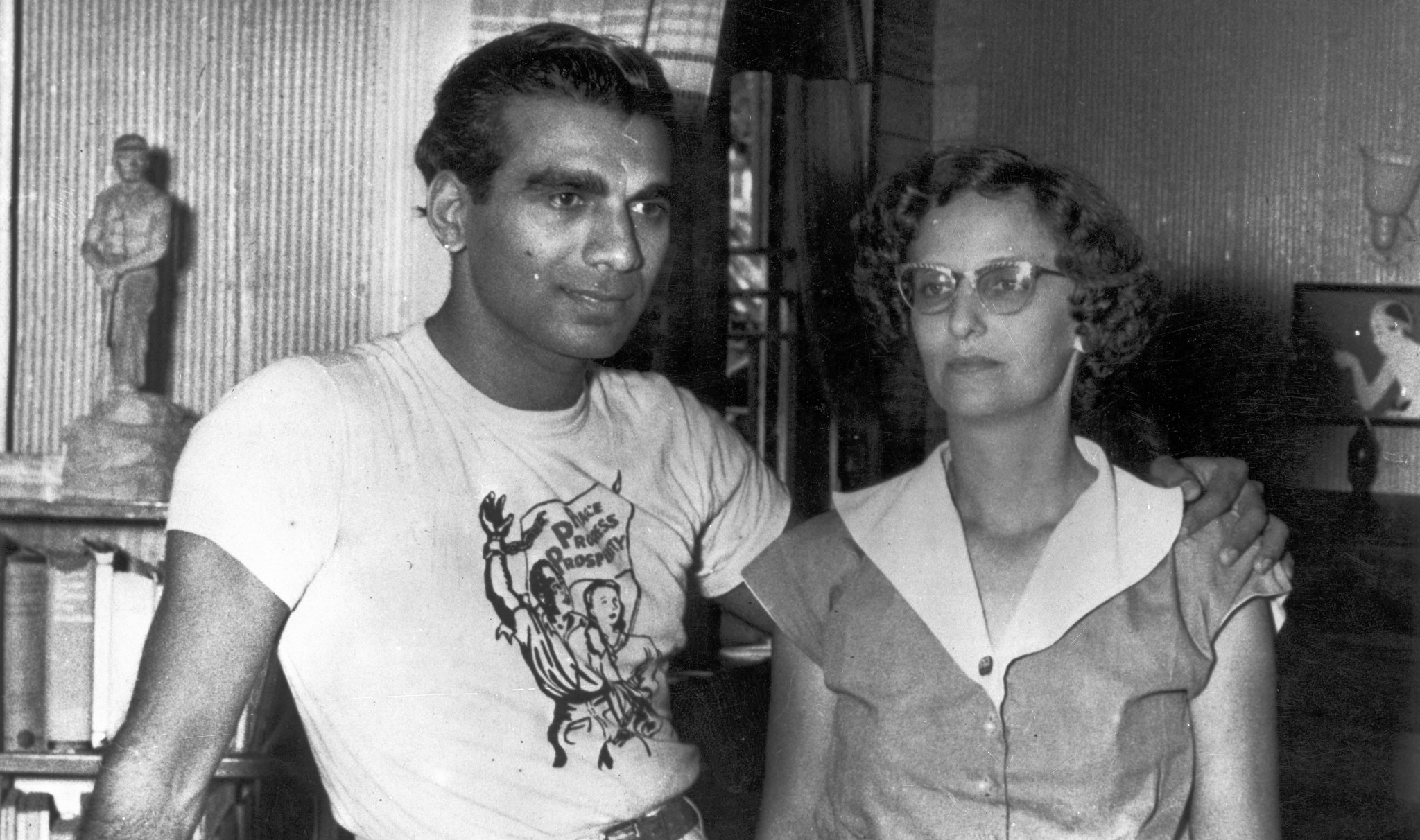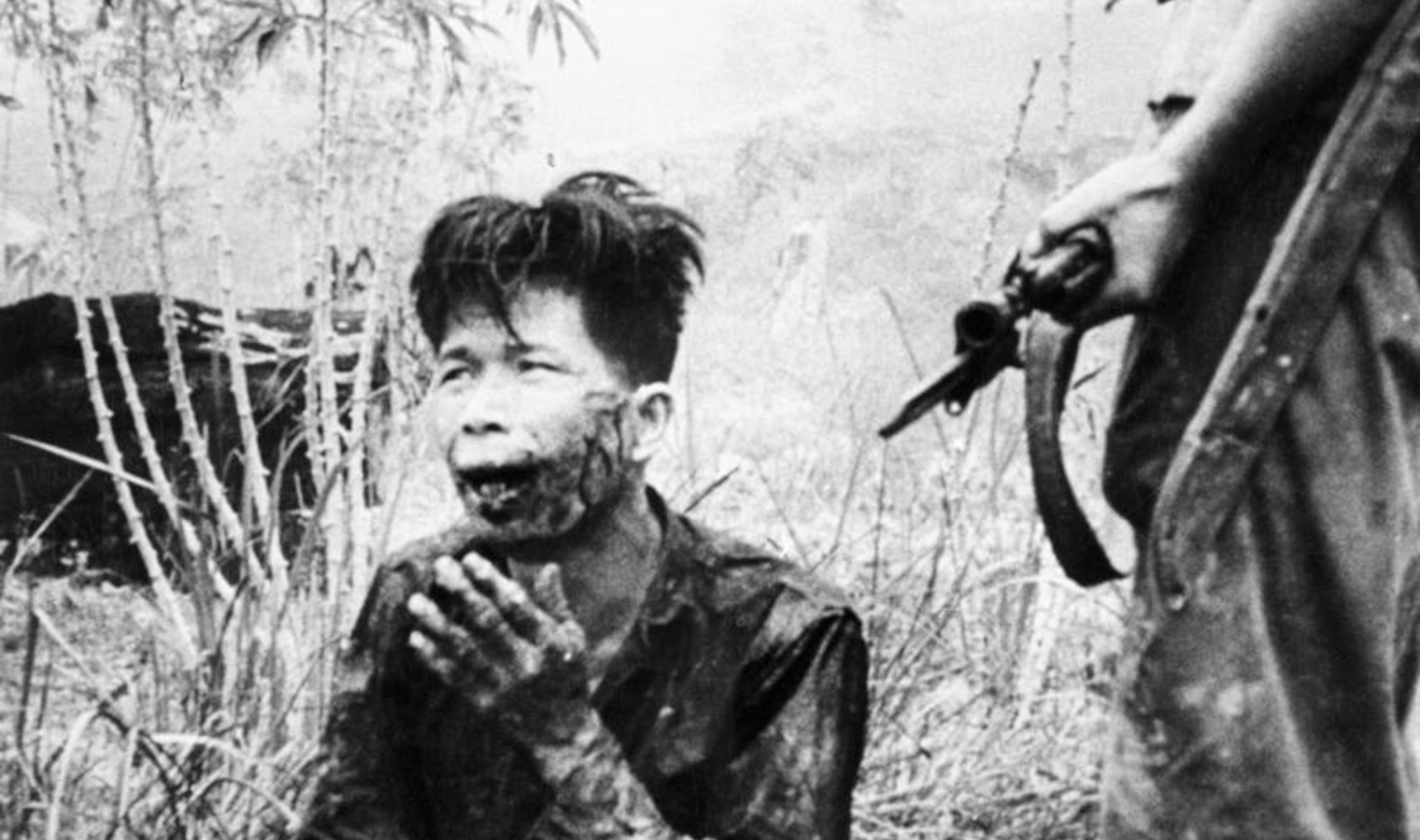By 1963, the UK colony of British Guiana was again faced with the same threat of democracy that British planners had confronted ten years earlier.
In October 1953, Britain had sent warships and troops to British Guiana, suspended the constitution and removed the elected government. The People’s Progressive Party (PPP) under Cheddi Jagan had won 18 out of the 24 seats in the country’s first elections under universal suffrage.
Jagan had a progressive economic agenda that promoted the welfare of the territory’s impoverished citizens, and in the process threatened the control over the territory’s resources, principally sugar, by UK and allied business interests
Unfortunately for Whitehall, Jagan’s PPP had won the 1961 elections and had again become the ruling party in government. Britain did not want to grant independence to British Guiana if Jagan were to become the first post-independence leader.
There were two differences from 1953. The first was the means: instead of a military intervention, the British effected a “constitutional coup” to ensure Jagan would not be re-elected.
The second was the political background: that by 1963, Britain simply wanted to get out of Guiana and hand it over to the US. It was no longer acting to primarily protect its business interests but as the lieutenant of the US, which successfully lobbied London to promote a coup on its behalf.
“The sooner we get these people out of our hair the better”, commonwealth secretary Duncan Sandys told prime minister Harold Macmillan in January 1962. Macmillan’s adviser, Burke Trend, agreed, saying “we are sick of trying to hold the balance between these quarrelsome people and want to wash our hands of them as rapidly as we can”.
US files show that British officials “assert in private that British Guiana is in the US, not the UK, sphere of interest and they probably consider that its future is not properly their problem but one for the US”.
Britain still had substantial commercial interests in the territory – most importantly a $400-500m investment in the sugar industry – yet it was concern about placating the Americans that was uppermost in British minds at this time.
Background to a coup
British Guiana remained a desperately poor country with a population of just over 500,000 people, half of whom were of Indian origin and around a third of African origin.
The economy was still dependent on sugar and bauxite with the sugar estates and mining industry “owned by outside capital”, the UK’s Joint Intelligence Committee noted.
The sugar industry remained in the hands of two British companies, Bookers and the Demerara Company, both of which made handsome profits while the overwhelming majority of the population endured grinding poverty.
The US files vary between describing Jagan’s PPP programme as “communist” and “nationalist”. A US intelligence report from March 1961 noted it was unlikely that Jagan was seeking to establish a communist regime.
Rather, it stated, “we consider it more likely that an independent Jagan government would seek to portray itself as an instrument of reformist nationalism which would gradually move in the direction of Castro’s Cuba”.
The British believed, according to the US files, that “Jagan is not a communist” but “a naïve, London School of Economics Marxist filled with charm, personal honesty and juvenile nationalism”.
‘Ablest leader’
The nationalist threat posed by Jagan was compounded by the recognition in internal US State Department files that he “leads the largest and most cohesive party in the country” and “is the ablest leader in British Guiana”.
The US feared before the August 1961 elections that, if Jagan won, he would “make a more determined effort to improve economic conditions” by accepting a loan from Cuba, whose regime was providing a model for others in Latin America, and may threaten “nationalisation or confiscation of foreign and local businesses”.
Cheddi Jagan “is the ablest leader in British Guiana”
In April 1961, at meetings in Washington, the US proposed to Britain “ways and means of ensuring that an independent British Guiana was not dominated by communists”. Foreign secretary Alec Douglas Home said Britain was “anxious to do everything possible to make sure that British Guiana developed on the right lines”.
A group was set up in which US and British officials looked into “the possibilities of taking action to influence the results of the election” scheduled for August 1961, Douglas Home noted.
But despite US pleas, British officials refused to cooperate in the US plan to actively prevent Jagan winning the election. They argued it was better to work with him and steer him away from unacceptable policies through financial and economic aid.
‘Substitute for Jagan’
The PPP won 20 of the 35 seats in the assembly in the 1961 elections – 45 per cent of the vote – against 11 seats won by the People’s National Party, the principal opposition party, under Forbes Burnham.
After the election, the US State Department recommended a programme that mixed offering Jagan technical and economic assistance with a covert operation “to expose and destroy communists in British Guiana” and to find “a substitute for Jagan himself, who could command East Indian support”.
President Kennedy’s special assistant, Arthur Schlesinger, wrote that “this means that the covert program must be handled with the utmost discretion”.
The US track emphasising working with the Jagan government had been agreed with the British, who were still rejecting covert action to oust him. But by October 1961 the files show that US planners were voicing objections to this strategy and wanted to re-open the matter with the British. No US aid was, in fact, ever provided.
“It is not possible for us to put up with an independent British Guiana under Jagan”
In February 1962 US secretary of state Dean Rusk told Douglas Home that “I have reached the conclusion that it is not possible for us to put up with an independent British Guiana under Jagan”.
Jagan had “grandiose expectations of economic aid”, too many “communist connections” and was professing policy that “parallels that of Castro”. “I hope we can agree that Jagan should not accede to power again”, he concluded.
This was too much even for the British. Macmillan wrote that he read Rusk’s letter with “amazement”, telling Douglas Home: “How can the Americans continue to attack us in the United Nations on colonialism and then use expressions like these which are not colonialism but pure Machiavellianism?”
Douglas Home replied to Rusk and, referring to his view that “Jagan should not accede to power again”, countered: “How would you suggest that this can be done in a democracy?” Britain, he said, could also not go back on its promise to grant independence.
Alternative constitution
However, the British government soon acquiesced in US planning. The big issue was when London was going to grant full independence. At a constitutional conference in March 1960 the principle of independence had been conceded and a new constitution agreed.
It was envisaged that independence would take place two years after the introduction of the new constitution in August 1961, i.e., August 1963.
In March 1962, colonial minister Hugh Fraser visited Washington. After meetings with Kennedy and others, Fraser came back talking of an alternative constitution involving proportional representation rather than the present first past the post system. But any proposal on this, he wrote, “must not flow from us but from the demands of the British Guianese themselves”.
A change in the constitution was necessary since, as a US intelligence report in April recognised, new elections held on the same basis as in August 1961 “would probably return a Jagan government again”.
In May 1962 Macmillan told cabinet secretary Norman Brook that “it is surely to our interests [sic] to be as cooperative and forthcoming as we can” towards the US desire for “a satisfactory solution” in British Guiana.
His note to Brook asked him to set up a committee to consider the future of the territory – presumably to work on the fixing of the constitution following Fraser’s meetings with the Americans – and also stated that this note was not being copied to any of the ministers concerned.
At this point some of the British files have been censored but it seems Macmillan wrote to Kennedy at this time informing him of a change of British policy – the beginning, in fact, of British constitutional coup planning.
Covert action
The US, however, still continued covert planning. “Here is a paper from Dean Rusk which comes out hard for a policy of getting rid of Jagan”, one US note from July 1962 reads.
The files then refer to CIA plans for ousting him. “Should our covert program succeed, we would wish to be in the position of being able to give the successor regime immediate aid”, Schlesinger told president Kennedy in September 1962.
“Here is a paper from Dean Rusk which comes out hard for a policy of getting rid of Jagan”
The CIA helped to organise and fund anti-Jagan protests in February 1962 which resulted in strikes and riots and during which the British, perhaps ironically, sent troops to restore order. But the centrepiece of the CIA’s operation was funding the general strike that began in April 1963 and lasted for 80 days.
Using $1m allocated for the purpose, CIA agents gave advice to local union leaders on how to organise and sustain the strike and provided funds and food to keep the strikers going. This strike was publicly cited by British officials as evidence that Jagan could not run the country.
Proportional representation
Instituting a system of proportional representation was seized on as a way of ensuring Jagan did not take office.
In March 1963 a note from Everett Melby, the US consul general in the capital, Georgetown, confirms the agreement between the US and Britain: “that proportional representation (PR) as an electoral system for British Guiana (BG) represents the most practical electoral device for replacing Premier Cheddi Jagan and the People’s Progressive Party (PPP) with a more democratic and reliable government”.
The use of the term “more democratic” is simply the facade maintained even in internal communications for what was in effect a coup.
“An independent Guyana will be within the US sphere”
“An independent Guyana will be within the US sphere”, Melby noted, adding: “It is not in the national interest to have a communist government on the mainland of South America. An independent Guyana with Jagan in office represents such a threat and as such should be removed”.
In June, now prime minister Douglas Home, who succeeded Macmillan, met Kennedy for talks in Britain. The brief for Douglas Home noted: “If Jagan maintains his hold over the Indians, it is inevitable that in a few years he will lead the government”.
He added: “The normal course would be for us to go ahead with independence under the present government. Were it not for Jagan’s communist leanings we should have no hesitation. But we are willing to consider with the President the possibility of independence under an alternative (Burnham) government”.
‘Removal of the Jagan government’
During these Anglo-American talks, British officials formally proposed to the Americans to “establish a Burnham-D’Aguiar [the latter the other opposition party leader] government and then grant British Guiana independence”.
Duncan Sandys, now colonial secretary, “said we had to be careful that Jagan should not be put in a position where he would ask for dissolution [of the current government] and new elections, because he [Jagan] would certainly win again”.
On 18 July Macmillan wrote to Kennedy outlining (in the words of the latter’s in reply in September) “your plan for a series of moves in September or October which would result in the removal of the Jagan government”.
The aim, as explained by Macmillan, was to summon the three political leaders in British Guiana and “impose a solution” by establishing “a new electoral system designed to counteract racialism”. The reference was to proportional representation.
It was likely, Macmillan wrote, that Jagan would refuse to cooperate, in which case Britain would suspend the constitution. If he did cooperate, “we shall have to postpone his removal until he shows that he is deliberately obstructing”.
Also important was to keep the United Nations out. A recent proposal for a UN commission needed to be avoided “since it would be bound to recommend early independence, and would be more than likely to advise the retention of the present electoral system”.
Coup victory
The coup was staged at the end of October 1963 in a constitutional conference. Duncan Sandys announced the new electoral system under proportional representation and the holding of fresh elections under the supervision of an official appointed by the British government.
Jagan immediately attacked the British for continuing to refuse to set a date for independence and for obviously rigging the electoral system to bar him from office.
He wrote to Douglas Home pointing out that PR had been rejected in Britain by both the Conservative and Labour parties and that the previous colonial secretary, Iain McLeod, had also rejected a call for PR at the 1960 constitutional conference.
A file of 26 November 1963 shows Anglo-American planners gloating at their coup victory. In a meeting between Douglas Home and Dean Rusk, “the Prime Minister said that this had gone off slightly better than had been hoped…It had even been slightly awkward that Dr Jagan had given so little trouble”.
“The coup was staged at the end of October 1963 in a constitutional conference2
Jagan may have had hopes that the incoming Labour government in October 1964 would have squashed the PR plan. Within days of taking office, however, it had dashed these hopes.
“Bowing to United States wishes”, the New York Times wrote, the new British government “ruled out early independence for British Guiana” and was proceeding with elections under proportional representation.
In these elections, held in December 1964, the PPP increased its vote over the 1961 elections (to 46 per cent) and won the most seats. But Forbes Burnham was asked to form a government under the new PR system which gave the two opposition parties together a majority of seats.
Now that the acceptable leadership had taken office, Guyana could be granted independence, which proceeded in 1966.
The coup was also undertaken with British awareness, described in a previous brief to the prime minister, that a Burnham/D’Aguiar coalition “would be inefficient”, that “Burnham himself is unreliable” and that “any African leader would have great difficulty in governing a country with an overwhelmingly Indian population”.
But these were trifling concerns in the pursuit of Anglo-American power.This is an edited extract from Mark Curtis’ book, Unpeople: Britain’s Secret Human Rights Abuses




